The Eurovision Song Contest is an annual international song competition organized by the European Broadcasting Union (EBU). Participating broadcasters submit an original song representing their country, which is then performed and broadcast live across the Eurovision and Euroradio networks. Viewers and juries from each participating country vote for other countries' songs, and the entry with the most points is declared the winner.
1950: Formation of the European Broadcasting Union (EBU)
In 1950, the European Broadcasting Union (EBU) was formed among 23 broadcasting organisations, setting the stage for future collaborative broadcasting initiatives.
1951: First Use of "Eurovision" by George Campey
In 1951, British journalist George Campey first used the word "Eurovision" in the Evening Standard to refer to a BBC programme relayed by Dutch television.
1951: Sanremo Music Festival Inspired Eurovision
In 1951, the Italian Sanremo Music Festival was held in the Italian Riviera, serving as the inspiration and basis for the Eurovision Song Contest.
1953: Coronation of Elizabeth II Broadcast Internationally
In 1953, the coronation of Elizabeth II was among the first events broadcast internationally via the Eurovision transmission network.
January 1955: EBU Committee Formed to Explore Eurovision
In January 1955, an EBU committee, headed by Marcel Bezençon, was formed to investigate new initiatives for cooperation between broadcasters, including a European song competition.
October 1955: EBU Agrees to Organise Song Contest
In October 1955, the EBU's general assembly agreed to organise the song contest, initially titled the European Grand Prix, with the Swiss Broadcasting Corporation (SRG SSR) hosting the event.
1956: Orchestra presence
From 1956, the orchestra was a prominent aspect of the contest.
1956: First Eurovision Song Contest Held
In 1956, the Eurovision Song Contest was first held. This marked the beginning of the annual international music competition, making it the longest-running international music competition on television.
1956: Italian Sanremo Music Festival used as Basis
In 1956, the Italian Sanremo Music Festival, held since 1951, served as the basis for the initial planning of the Eurovision Song Contest, with several amendments for its international nature.
1956: Only Footage Available of 1956 Contest
The only footage available of the 1956 contest is a Kinescope recording of Lys Assia's reprise of her winning song. Full recording of the contest does not exist, according to the EBU archives.
1957: Introduction of the Rule Against Voting for Own Country
In 1957, a rule was introduced stating that national juries and the public in each country are not allowed to vote for their own country.
1957: Scoreboard and Public Voting Introduced
In 1957, the use of a scoreboard and public announcement of voting, inspired by the BBC's Festival of British Popular Songs, began in the Eurovision Song Contest.
1957: Introduction of Voting Segment with Spokesperson
Since 1957, each country's votes have been announced during a special voting segment as part of the contest's broadcast, with a selected spokesperson assigned to announce the results of their country's vote.
1958: Winning Broadcaster Hosts Following Year
In 1958, the tradition began that the winning broadcaster hosts the following year's contest, which has since become a standard feature of the event.
1958: Exceptions to hosting rule
Since 1958, the winning broadcaster traditionally hosts the following year's event, with some exceptions.
1959: Swedish Melodifestivalen Established
In 1959, Swedish Melodifestivalen was first established. It is now one of the most watched television shows in Sweden each year.
1961: "Nous les amoureux" contains references to a homosexual relationship
In 1961, "Nous les amoureux", the winning song for Luxembourg, contained references to the difficulties faced by a homosexual relationship.
1961: Inaugural Sopot International Song Festival
In 1961, the Sopot International Song Festival, an international music competition, was first held.
1964: No Full Recording of 1964 Contest Exists
No full recording of the 1964 contest is known to exist, with conflicting reports of the fate of any copies that may have survived, according to EBU archives.
1965: Criticism over Swedish entry
Following criticism over the 1965 Swedish Eurovision entry being performed in English, a new language rule was introduced.
1965: Tenth Edition of the Contest
In 1965, the contest's tenth edition featured 18 participating countries, marking a significant increase from the original seven in 1956.
1965: Italian Name Used for Official Logo
In 1965, when Italy hosted the contest, the Italian name Gran Premio Eurovisione della Canzone was used for the official logo.
1966: Introduction of language restriction
In 1966, a new rule was introduced restricting Eurovision songs to be performed only in an official language of the country it represented.
1968: Colour Broadcasts Started
In 1968, colour broadcasts of the Eurovision Song Contest began, marking a significant technological advancement in the presentation of the event.
1970: Introduction of postcards
In 1970, short video postcards were first introduced as an attempt to "bulk up" the Eurovision contest.
1971: Groups allowed to compete
In 1971, for the first time, groups were permitted to compete in the Eurovision Song Contest.
1972: First OTI Festival
In 1972, the OTI Festival, an Ibero-American contest, was first held by the Organización de Televisión Iberoamericana (OTI).
1972: Release of Spanish musical
In 1972, the Spanish musical "En un mundo nuevo" was released, celebrating the contest.
1973: Pre-recorded backing tracks allowed
In 1973, pre-recorded backing tracks were first allowed for competing acts, but any pre-recorded instruments were required to be seen being "performed" on stage.
1973: Abolishment of language restriction
In 1973, the language rule that restricted Eurovision songs to be performed only in an official language of the country it represented was first abolished.
1975: Introduction of the '12 Points' System
In 1975, the "12 points" system was first introduced, marking a significant change in the voting process. Each country gave one set of points to their favorite songs.
1976: Dutch Name Used for Official Logo
In 1976, when the Netherlands hosted the contest, the Dutch name Eurovisiesongfestival was used for the official logo.
1977: Sopot Festival Rebranded as Intervision Song Contest
In 1977, the Sopot International Song Festival was rebranded as the Intervision Song Contest, under the patronage of the International Radio and Television Organisation (OIRT).
1978: Arab states cut broadcasting feed
In 1978, Israel's first win proved controversial for Arab states broadcasting the contest, which typically cut to advertisements when Israel performed. Many broadcasters cut the feed before the end of the voting when it became apparent Israel would win.
1980: Johnny Logan won for Ireland
In 1980, Johnny Logan won for Ireland in the Eurovision Song Contest.
1980: Last Intervision Song Contest
In 1980, the Intervision Song Contest was held for the last time under that name, as it was previously known as the Sopot International Song Festival.
1980: Dutch Name Used for Official Logo
In 1980, when the Netherlands hosted the contest, the Dutch name Eurovisiesongfestival was used for the official logo.
1980: Ralph Siegel's song writing involvement
In the 1980 Eurovision Song Contest, both Germany's and Luxembourg's entry were co-written by Ralph Siegel.
1981: Songs of Europe Celebrates 25th Anniversary
In 1981, the EBU celebrated the Eurovision Song Contest's twenty-fifth anniversary with 'Songs of Europe'. This event included live performances and video recordings of all Eurovision Song Contest winners up to 1981.
1982: "Ein bißchen Frieden" won for Germany
In 1982, Ralph Siegel was involved in writing "Ein bißchen Frieden", the winning entry for Germany.
1984: Foundation of OGAE
In 1984, the Organisation Générale des Amateurs de l'Eurovision (OGAE) was founded in Finland, becoming one of the oldest and largest Eurovision fan clubs.
1985: Satellite Broadcasts Began
In 1985, satellite broadcasts of the Eurovision Song Contest began, further expanding its reach and accessibility to international audiences.
1986: Sandra Kim, the youngest winner
In 1986, Sandra Kim won for Belgium at the age of 13, becoming the contest's youngest winner.
1987: Johnny Logan won for Ireland again
In 1987, Johnny Logan won for Ireland again in the Eurovision Song Contest.
1988: Introduction of Computer Graphics Scoreboard
In 1988, a computer graphics scoreboard was introduced, replacing the manually updated scoreboard used previously. It allowed for a more dynamic and automated display of the scores during the voting process.
1990: Regular Participation of 22 Countries
By 1990, 22 countries were regularly competing in the Eurovision Song Contest each year.
1990: Minimum age of contestants
Since 1990, all Eurovision contestants must be aged 16 or over on the day of the live show in which they perform.
1991: Italian Name Used for Official Logo
In 1991, when Italy hosted the contest, the Italian name Concorso Eurovisione della Canzone was used for the official logo.
1993: Relegation System Introduced
For the 1997 contest, a similar relegation system to that used between 1993 and 1995 was introduced, with each country's average scores in the preceding five contests being used as a measure to determine which countries would be relegated.
1993: Smallest hosting settlement in Millstreet
In 1993, Millstreet, Ireland, with a population of 1,500, remains the smallest hosting settlement for the Eurovision Song Contest, even though its Green Glens Arena could host up to 8,000 spectators.
1993: Introduction of Pre-Selection Method
In 1993, a pre-selection method was introduced to reduce the number of competing entries. Seven new countries from Central and Eastern Europe participated in Kvalifikacija za Millstreet, where Bosnia and Herzegovina, Croatia, and Slovenia were chosen to head to the contest in Millstreet, Ireland.
1993: Merger of EBU and OIRT
In 1993, the EBU merged with its Eastern European counterpart, the International Radio and Television Organisation (OIRT), further expanding the number of broadcasters eligible to participate.
1993: Kvalifikacija za Millstreet Pre-Qualifying Round
In 1993, the contest included a pre-qualifying round called Kvalifikacija za Millstreet for seven new countries, aiming to manage the increasing number of participants.
1994: Relegation Systems Introduced
From 1994, relegation systems were introduced to manage the number of competing entries, with the poorest performing countries barred from entering the following year's contest.
1994: Introduction of New Relegation System
In 1994, a new relegation system was introduced. The lowest-placed countries were forced to sit out the following year's event, being replaced by countries which had not competed in the previous contest.
1994: Use of Satellite Links for Spokesperson Announcements
In 1994, satellite links were employed for the first time, allowing the spokespersons to be seen visually by the audience and TV spectators during the voting announcements.
1994: Use of Relegation System for 1995 Contest
In 1994, the relegation system was used again for qualification for the 1995 contest. The lowest placed countries were forced to sit out the following year's event.
1995: Relegation System Used for 1996 Contest
The Relegation system from 1994 was used for qualification to the 1995 contest. Then, a new system was introduced for the 1996 contest.
1996: Audio-Only Qualification Round Held
In 1996, an audio-only qualification round was held to appease Germany. Germany ultimately missed out on competing in the Oslo contest.
1996: Brief Rebranding as Eurosong
In 1996, the Eurovision Song Contest was briefly rebranded as Eurosong in English, but this was reverted the following year.
1997: Reintroduction of Relegation System
For the 1997 contest, a similar relegation system to that used between 1993 and 1995 was introduced, with each country's average scores in the preceding five contests being used as a measure to determine which countries would be relegated.
1997: Paul Oscar, the contest's first openly gay artist
In 1997, Paul Oscar became the Eurovision Song Contest's first openly gay artist to compete, representing Iceland.
1997: Instrumental music can be pre-recorded
In 1997, all instrumental music was allowed to be pre-recorded, although the host country was still required to provide an orchestra.
1997: Introduction of Televoting on a Trial Basis
In 1997, televoting was introduced to the contest on a trial basis. Broadcasters in five countries allowed the viewing public to determine their votes for the first time.
1997: Introduction of televoting
Since the introduction of televoting in 1997, there has been evidence of 'patriotic voting', where foreign nationals vote for their country of origin.
1998: Objections and death threats against Dana International
In 1998, Dana International's selection was met with objections and death threats from orthodox religious sections of Israeli society, and her accommodation was reportedly in the only hotel in Birmingham with bulletproof windows.
1998: Dana International wins the contest
In 1998, Dana International, representing Israel, was the contest's first trans performer, and became the first LGBTQ artist to win the contest.
1998: Extension of Televoting
In 1998, televoting was extended to almost all competing countries following its trial in 1997.
1998: End of orchestra prominence
Until 1998, the orchestra was a prominent aspect of the contest.
1999: Language rule abolished again
Ahead of the 1999 Eurovision contest, the language rule was once again abolished.
1999: Orchestra became optional
In 1999, the rules were changed again, making the orchestra an optional requirement; the host broadcaster of that year's contest, the Israel Broadcasting Authority (IBA), decided not to provide an orchestra.
1999: Advertising Opportunities Introduced
Since 1999, broadcasters who wished to do so were given the opportunity to provide advertising during short, non-essential hiatuses in the show's schedule.
2000: Streaming Began
In 2000, streaming of the Eurovision Song Contest began, enabling a broader online audience to view the event.
2000: Final OTI Festival
In 2000, the OTI Festival was held for the last time. This Ibero-American contest was organized by the Organización de Televisión Iberoamericana (OTI).
2001: Largest host venue in Copenhagen
In 2001, the Parken Stadium in Copenhagen became the largest host venue for the Eurovision Song Contest, hosting almost 38,000 spectators.
2001: Return to 1993-1995 Relegation System
In 2001, the contest reverted to the same relegation system used between 1993 and 1995, where only the results from that year's contest would count towards relegation.
2001: Eurovision Available Online
Since 2001, Eurovision has been available online via the official Eurovision website, broadening its reach to a global audience.
2002: Sestre's appearance
In 2002, Sestre appeared for Slovenia.
2002: Introduction of unique slogans
In 2002, a unique slogan for each edition of the Eurovision Song Contest was introduced as an integral part of the visual identity.
2003: Influx of New Broadcasters
An influx of new broadcasters applying for the 2003 contest resulted in the introduction of a semi-final from 2004.
2004: Introduction of Semi-Final and Record Participation
From 2004, a semi-final was introduced, making the contest a two-day event. The 2004 contest saw a record 36 countries competing, with new entries from Albania, Andorra, Belarus, and Serbia and Montenegro and the return of previously relegated countries.
2004: Mandatory Televoting
From 2004, televoting became mandatory for almost all competing countries.
2004: Multi-Programme Event with Semi-Final
From 2004, the contest expanded to become a multi-programme event, with a semi-final at the 49th contest allowing all interested countries to compete each year.
2004: Introduction of a generic logo
In 2004, the EBU introduced a generic logo for the Eurovision Song Contest to create a consistent visual identity, moving away from each edition having its own logo.
2004: Standardization and Rebranding
In 2004, the names of the contest were standardized, and the contest was rebranded, with the official name Eurovision Song Contest being preferred.
2004: Introduction of the Semi-Final Round
Since the introduction of the semi-final round in 2004, Luxembourg and Ukraine are the only countries outside of the "Big Five" to have qualified for the final of every contest they have competed in.
2004: Big Five Automatic Qualification for Final
Since the introduction of the semi-finals in 2004, the 'Big Five' countries have automatically qualified for the final alongside the host country and have not been required to compete in the semi-finals.
2004: EBU Copyright Ownership
Until 2004, the host broadcaster owned the copyright of the contest that they produced, with the EBU owning the copyright of all subsequent editions.
2005: Congratulations: 50 Years of the Eurovision Song Contest
In 2005, 'Congratulations: 50 Years of the Eurovision Song Contest' was organized to celebrate the event's fiftieth anniversary. It featured a contest to determine the most popular song from among 14 selected entries from the contest's first 50 years.
2005: Widescreen Broadcasts Began
In 2005, broadcasts in widescreen format began for the Eurovision Song Contest, enhancing the viewing experience.
2007: Marija Šerifović wins for Serbia
In 2007, Marija Šerifović won the Eurovision Song Contest for Serbia, later publicly coming out as a lesbian in 2013.
2007: High-Definition Broadcasts Started
In 2007, broadcasts in high-definition began, providing a higher quality viewing experience for the Eurovision Song Contest.
2007: Criticism of the voting system
In 2007, criticism of the Eurovision voting system was at its highest, with Eastern European countries dominating the top 15 places, leading to calls for boycotts and discussions in European national parliaments.
2007: Eurovision Dance Contest Debut
In 2007, the Eurovision Dance Contest, an event featuring pairs of dancers performing ballroom and Latin dancing, took place for the first time.
2008: Second Semi-Final Added
From 2008, a second semi-final was added to each edition of the Eurovision Song Contest, further expanding the competition's structure.
2008: First edition of Eurovision in Concert
In 2008, Eurovision in Concert, held annually in Amsterdam, held its first edition, becoming one of the first of the 'pre-parties'.
2008: Record 43 Countries Participating
In 2008, a record 43 countries participated in a single Eurovision contest, a feat subsequently matched in 2011 and 2018.
2008: Introduction of second semi-final
In 2008, in response to criticism of the voting system, the EBU introduced a second semi-final, with countries split based on geographic proximity and voting history.
2008: Second Eurovision Dance Contest
In 2008, the Eurovision Dance Contest took place for the second and final time, featuring pairs of dancers performing ballroom and Latin dancing.
2008: Three Live Television Shows Format
Since 2008, each contest is typically formed of three live television shows held over one week: two semi-finals are held on the Tuesday and Thursday, followed by a final on the Saturday.
2009: Controversy Over Georgia's Planned Entry
In 2009, Georgia's planned entry, "We Don't Wanna Put In", caused controversy due to lyrics perceived as criticism of Vladimir Putin. After the EBU's request for changes was refused, the Georgian Public Broadcaster withdrew from the event.
2009: Reintroduction of Jury Voting
In 2009, a jury was reintroduced for the final. Each country's points comprised both the votes of the jury and the public in an equal split.
2010: Expansion of Jury and Public Voting to Semi-Finals
In 2010, the mix of jury and public voting was expanded into the semi-finals, building on its reintroduction in the final in 2009.
2011: Expansion to 'Big Five'
In 2011, Italy began competing again, expanding the 'Big Four' to the 'Big Five', who became the highest-paying EBU members that significantly fund the contest each year.
2011: Lena competed again in Eurovision
In 2011, Lena, who had won for Germany in 2010, competed again in Eurovision.
2011: Initiation of Project to Collate Footage
In 2011, a project was initiated to collate footage and related materials of all editions ahead of the event's 60th edition in 2015, led by the EBU.
2011: Record 43 Countries Participating
In 2011, a record 43 countries participated in a single Eurovision contest, matching the previous record set in 2008 and later in 2018.
2012: Turkey Ceased Participating After
After 2012, Turkey had ceased participating due to consternation from other competing countries, and was cited, among other aspects, as a reason.
2012: Baku Crystal Hall hosted Eurovision
In 2012, the Eurovision Song Contest was hosted in Baku, Azerbaijan, at the Baku Crystal Hall, a venue that did not exist when Azerbaijan won the previous year.
2012: Introduction of the Latest Eurovision Network Logo
In 2012, the latest Eurovision network logo was introduced, distinguishing it from the EBU logo. The accompanying theme tune is the Prelude (Marche en rondeau) to Marc-Antoine Charpentier's Te Deum.
2013: Release of Israeli comedy Cupcakes
In 2013, Eytan Fox's Israeli comedy "Cupcakes" was released, celebrating the Eurovision Song Contest.
2013: Same-sex kiss in Finland's performance
In 2013, Krista Siegfrids' performance of "Marry Me" for Finland included a same-sex kiss with one of her female backing dancers.
2013: Marija Šerifović publicly comes out as a lesbian
In 2013, Marija Šerifović, who won for Serbia in 2007, publicly came out as a lesbian.
2013: Turkey pulls out of the contest
In 2013, Türkiye Radyo ve Televizyon Kurumu (TRT) from Turkey first pulled out of the contest, citing dissatisfaction in the voting rules; later, it cited LGBTQ performances as another reason for its continued boycott, refusing to broadcast the 2013 event over Finland's same sex kiss.
2013: Introduction of the "Flag Parade"
In 2013, the Eurovision Song Contest final introduced a "Flag Parade" during the opening act. This involved competing artists entering the stage behind their country's flag, similar to the Olympic Games opening ceremony.
2013: Inaugural Turkvision Song Contest
In 2013, the Turkvision Song Contest, a contest for countries and autonomous regions with Turkic links, was first organized.
2013: Producer-determined running order
Since 2013, the order in which the competing countries perform has been determined by the contest's producers and submitted to the executive supervisor and reference group for approval.
2014: Conchita Wurst wins for Austria
In 2014, Conchita Wurst, the drag persona of openly gay Thomas Neuwirth, won the Eurovision Song Contest for Austria.
2014: Wurst wins in 2014
In 2014, Wurst won the contest.
2014: Revamp of the Eurovision logo
In 2014, the Amsterdam-based Cityzen Agency revamped the Eurovision logo for the contest's 60th edition.
2015: Australia's debut in Eurovision
In 2015, Australia became the first country without an EBU active member broadcaster to compete in the Eurovision Song Contest. They were invited by the contest's reference group to mark the 60th edition, with the Australian EBU associate member Special Broadcasting Service (SBS) participating.
2015: 60th Edition of the Contest
In 2015, the Eurovision Song Contest celebrated its 60th edition, following a project initiated in 2011 to collate footage of all editions.
2015: Eurovision Song Contest's Greatest Hits
In 2015, the sixtieth anniversary of the Eurovision Song Contest was marked by 'Eurovision Song Contest's Greatest Hits'. This concert featured performances by past Eurovision artists and video montages of performances and footage from previous contests.
2016: Implementation of Two Sets of Points
In 2016, a similar system to the one introduced in 1975 was implemented. Two sets of points were awarded in both the semi-finals and the final. Each country was now awarding two sets of points.
2016: Tie-Break Procedure Introduced
In 2016, a tie-break procedure was introduced for countries finishing with the same number of points. The country with more points from public voting is placed higher.
2016: Complaints against Ukraine's winning song "1944"
In 2016, complaints were levied against the winning song for Ukraine, "1944", whose lyrics referenced the deportation of the Crimean Tatars. The Russian delegation claimed the song had a greater political meaning considering Russia's annexation of Crimea.
2018: China terminates broadcasting rights
During the 2018 contest, China terminated broadcasting rights due to censorship of "abnormal sexual relationships and behaviours" that went against Chinese broadcasting guidelines.
2018: Record 43 Countries Participating
In 2018, a record 43 countries participated in a single Eurovision contest, matching the previous records set in 2008 and 2011.
2018: Same-sex relationship portrayed in Ireland's stage show
In 2018, the stage show of "Together" by Ryan O'Shaughnessy for Ireland had two male dancers portraying a same-sex relationship.
2019: Duncan Laurence wins for the Netherlands
In 2019, openly bisexual performer Duncan Laurence won the Eurovision Song Contest for the Netherlands.
2019: Public Points Revealed in Ascending Order
Since 2019, the public points have been revealed in ascending order based on the jury vote, with the country that received the fewest points from the jury being the first to receive their public points.
May 2020: Martin Österdahl became executive supervisor
In May 2020, Martin Österdahl took over the role of executive supervisor of the Eurovision Song Contest from Jon Ola Sand.
2020: Eurovision: Europe Shine a Light
Following the cancellation of the 2020 contest, the EBU organized a special non-competitive broadcast, 'Eurovision: Europe Shine a Light', which provided a showcase for the songs that would have taken part in the competition.
2020: Release of Eurovision Song Contest: The Story of Fire Saga
In 2020, Netflix's musical comedy, "Eurovision Song Contest: The Story of Fire Saga", produced with backing from the EBU and starring Will Ferrell and Rachel McAdams, was released.
2020: Launch of EurovisionAgain
In 2020, during the COVID-19 lockdowns, EurovisionAgain was launched, where fans watched and discussed past contests in sync on YouTube and other social media platforms, facilitating over £20,000 in donations for UK-based LGBTQ charities.
2020: Eurovision Cancelled Due to COVID-19
In 2020, the Eurovision Song Contest was cancelled due to COVID-19 restrictions. This was the first time the contest had been cancelled since its inception.
2020: Cancellation of the 2020 Contest
In 2020, the Eurovision Song Contest was cancelled due to the COVID-19 pandemic. In its place, a special broadcast, Eurovision: Europe Shine a Light, was produced to honour the songs and artists that would have competed.
2020: Hungary's non-participation
Since 2020, LGBTQ visibility in the contest has been cited as a deciding factor for the non-participation of Médiaszolgáltatás-támogató és Vagyonkezelő Alap (MTVA) from Hungary, although no official reason was given.
2021: Belarus Disqualified
In 2021, Belarus was disqualified after its planned entry, "Ya nauchu tebya (I'll Teach You)", and another potential song were deemed to breach the contest's rules on neutrality and politicization, in the wake of demonstrations against disputed election results.
2021: Nikkie de Jager hosts the contest
In 2021, Nikkie de Jager became the first trans person to host the Eurovision Song Contest.
2021: Måneskin wins for Italy
In 2021, rock band Måneskin, featuring openly bisexual Victoria De Angelis, won the Eurovision Song Contest for Italy.
2021: Pre-recorded backing vocals allowed
Since 2021, live backing vocals are not required and can be optionally pre-recorded for Eurovision entries.
2022: First American Song Contest
In 2022, the American Song Contest, an adaptation of the Eurovision contest for artists in the United States, was held. It featured songs representing U.S. states and territories.
2022: Ultra-High-Definition Tested
In 2022, ultra-high-definition was tested for the first time during the Eurovision Song Contest, exploring further enhancements in broadcast quality.
October 2023: Renewed calls for Israel's exclusion
In October 2023, following the outbreak of the Gaza war, there were renewed calls for Israel's exclusion from the Eurovision Song Contest.
2023: United by Music Slogan
In 2023, "United by Music" served as the slogan for the Eurovision Song Contest.
2023: Loreen won for Sweden again
In 2023, Loreen won for Sweden again in the Eurovision Song Contest, making her a two-time winner.
2023: Reintroduction of Full Public Voting in Semi-Finals
In 2023, full public voting was reintroduced to determine the results of the semi-finals, marking a shift from the mix of jury and public voting that had been in place since 2010.
2023: United Kingdom hosted on behalf of Ukraine
In 2023, the United Kingdom hosted the Eurovision Song Contest on behalf of Ukraine. Traditionally, the previous host announces their jury points first and the current host announces last, but the UK went first as they were hosting on behalf of Ukraine.
2023: Implementation of the Most Recent Voting System
In 2023, the most recent version of the positional voting system was implemented, where each country awards points to their ten favorite songs. Viewers in non-participating countries were also able to vote via an online platform, which were aggregated and awarded as one set of points from an "extra country" for the overall public vote.
2024: 52 Countries Participated in Eurovision
As of 2024, broadcasters from 52 countries have participated at least once in the Eurovision Song Contest.
2024: Germany's Only Missed Contest
As of 2024, the 1996 contest in Oslo remains the only contest Germany has not participated in.
2024: 68 Contests as of 2024
As of 2024, there have been 68 Eurovision contests, making it the longest-running annual international televised music competition as determined by Guinness World Records.
2024: Permanent slogan introduced
From 2024 onwards, the unique slogans were replaced by a permanent slogan, "United by Music", which had previously served as the slogan for the 2023 contest.
2024: Nemo wins for Switzerland
In 2024, Nemo, representing Switzerland, became the first non-binary winner of the Eurovision Song Contest.
2024: Big Five Perform Live in Semi-Finals
Since 2024, the entries from the "Big Five" countries, along with the host country, have been performed live in one of the two semi-finals outside of the competition for qualification.
Mentioned in this timeline
TikTok also known as Douyin in China is a social...

Vladimir Vladimirovich Putin is a Russian politician and former intelligence...
Ukraine is a country in Eastern Europe the second-largest on...
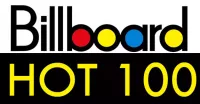
The Billboard Hot is the primary music chart in the...
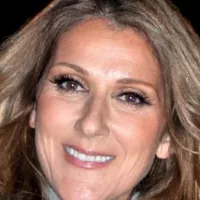
C line Dion is a highly successful Canadian singer often...
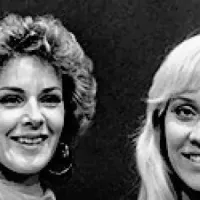
ABBA was a highly successful Swedish pop group formed in...
Trending
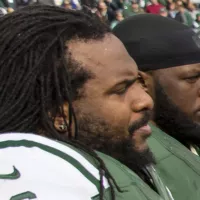
26 minutes ago Salsa Legend Willie Colón Dies at 75: Bronx-Raised Musical Pioneer
1 hour ago Juventus faces crisis after Como's lesson at Stadium; Roma may extend lead.

2 hours ago Elina Svitolina defeats Coco Gauff, faces Jessica Pegula in Dubai final.
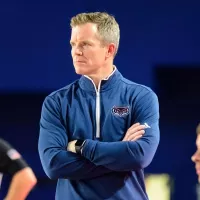
2 hours ago Dusty May on Naismith Watch List: Coach of the Year Potential?
2 hours ago James Milner Breaks Premier League Appearance Record: Klopp Praises His Impact
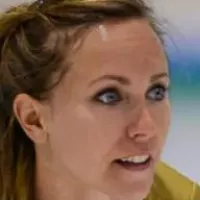
3 hours ago Team Homan’s Olympic Curling Journey: Semifinal Setbacks and Future Games
Popular

Jesse Jackson is an American civil rights activist politician and...
Randall Adam Fine is an American politician a Republican who...

Barack Obama the th U S President - was the...

Ken Paxton is an American politician and lawyer serving as...

Bernie Sanders is a prominent American politician currently serving as...

Michael Joseph Jackson the King of Pop was a highly...